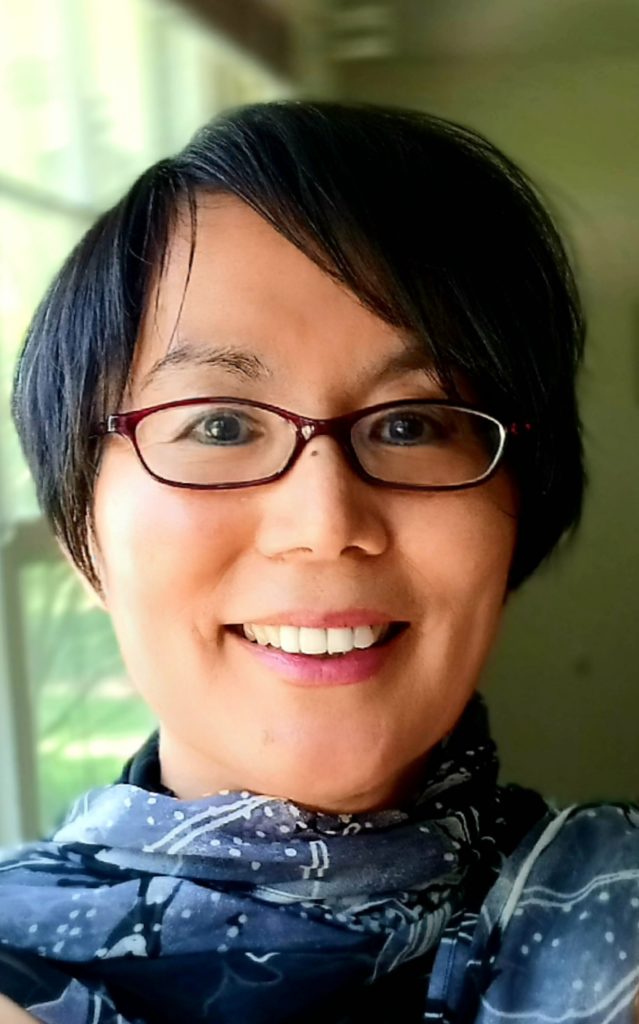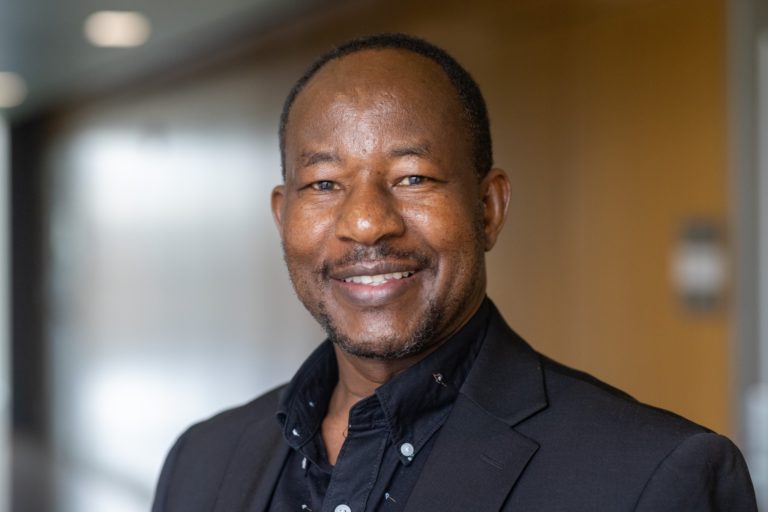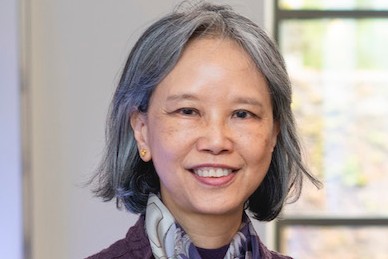In this Faculty Voice, Catherine Ryu, Associate Professor of Japanese Literature and Culture in the Department of Linguistics, Languages, and Cultures at Michigan State University, shares how Asian Pacific Islander Desi American (APIDA) Heritage Month is important to recognize and celebrate, but also the need to go beyond public awareness. Ryu says concerted and sustained efforts are needed to create a more inclusive culture for all.
At MSU, Ryu also serves as Director of the Japanese Studies Program, which has been at the forefront of reducing institutional barriers for those outside the MSU community through initiatives such as the MSU-Lansing Community College Academic Alliance (Envision Green) to help students transfer into MSU and the Japanese Popular Culture Translation Workshop Series held during the spring semester with participants from around the world.
Currently, one of Ryu’s research projects in digital humanities entails building an annotated corpus of Japanese classical poetry known as tanka (literally “short poem”). Once the poems included in a poetry anthology are converted into a dataset, they can be parsed, analyzed, visualized, disseminated, and appreciated from a new perspective. This collective dataset will open new spaces and ways to ask critical questions and to research this form of Japanese literature.
__________________________________________________________________________________________

As a Japanese literature specialist, I am particularly drawn to the richly intricate nuances that the Japanese language is capable of when depicting human emotions and experiences, particularly as expressed through an author’s skilled orchestration of communication strategies, which involve varying ranges of politeness, the use of tenses, and diction, just to mention a few.
At the same time, it is important for me to point out that as a first-generation Korean American, my interest in Japanese literature and culture has been shaped in concert with a deepening and expanding understanding of my own position historically, linguistically, and culturally.
Growing up in South Korea in the postcolonial era, I was first exposed to the Japanese language through my parents’ private use of this language at home. If they had to discuss something important in front of their children, they would switch to Japanese. My parents’ “secret” language sounded mysterious and left a powerful impression on me as a young child.
Only after I started to learn at school about the history of Japanese imperialism in Korea and its impact did I come to understand why my own parents, whose formative years coincided with the colonial era, spoke Japanese, and why my parents forbade their children to study Japanese, even as they strongly encouraged us to learn foreign languages such as English, French, or German.
“As a first-generation Korean American, my interest in Japanese literature and culture has been shaped in concert with a deepening and expanding understanding of my own position historically, linguistically, and culturally.”
After my family immigrated to the U.S. when I was 16, I immersed myself in studying English, and after entering graduate school, I started learning Japanese against my parents’ wishes. Initially, I chose to concentrate in Asian art history as a way of better understanding my own cultural backgrounds, while furthering my undergraduate training in Western studio art and art history. However, I soon fell in love with the Japanese language, the sounds of which were already familiar to me from my childhood, and I eventually switched my specialization to Japanese literature.
Since joining MSU in 2001, I have been deepening and expanding my areas of research and teaching, which now include modern Japanese literature, Japanese popular culture, translation studies, global studies, digital humanities, second language studies, and others. The focus of my work to date has been on enhancing the undergraduate experience through curriculum development and extracurricular activities focused on Japanese culture and literature.
As Director of the Japanese Studies Program since 2020, my goal has been to foster an inclusive learning community in which both students and faculty can grow together through our shared interests in and experiences of Japan in varying contexts and from multiple perspectives.
“APIDA Heritage Month is important largely as a first step toward raising a public awareness about the history and presence of the diverse and multifaceted communities residing here, as well as their invaluable contributions toward building the United States that has become what it is today.”
Over the years, my engagement with Japanese literature and culture has turned into a journey of self-discipline and self-exploration as a Korean American woman in 21st-century academia in the U.S., and as a daughter who has not only inherited my parents’ colonial and postcolonial experiences in Korea, but also acquired new critical perspectives through which to rethink and reassess my intergenerational legacies at the personal, national, and global levels.
For my parents, especially given their anti-Japanese ideological stance, the Japanese culture and literature that they were forced to experience still remains as an expression of the Japanese imperialism in the Korean peninsula (occurring between 1910-1945) that seriously and irreversibly affected their own lives.
As for myself, I belatedly chose Japanese culture and literature as an academic path in graduate school in the U.S. in the late 20th century. My parents and their experiences have become an integral aspect of my academic training and personal history, which includes an extended stay in Japan for research. Japanese culture and literature have thus come to represent the focal point of my scholarly pursuit.
By contrast, my students’ relationships with Japan seem to differ greatly from my own. Most of them have encountered and experienced Japanese culture in their childhood through watching anime and reading manga. Their connections with Japanese popular culture are personal as well as collective — they possess a shared experience of having watched the same manga, played the same video games, or participated in cosplay conventions together. They also study Japanese together, exchange information about study abroad and scholarship opportunities, and share their aspirations for future careers related to aspects of Japan.
“To acquire a capacity beyond merely engaging with or superficially experiencing some aspects of other cultures, we need to purposefully develop a clear historical perspective in a global context.”
To acquire a capacity beyond merely engaging with or superficially experiencing some aspects of other cultures, we need to purposefully develop a clear historical perspective in a global context. Only when we possess such a perspective can we then gain a deeper understanding of the complex network of relations among various cultures that are embedded in the changing global structures of power. If we focus on studying only a certain aspect of Japanese culture that appeals to us in a self-gratifying manner, it may lead to willful ignorance both about ourselves and Japanese culture.
APIDA Heritage Month is important largely as a first step toward raising a public awareness about the history and presence of the diverse and multifaceted communities residing here, as well as their invaluable contributions toward building the United States that has become what it is today.
Global and cultural literacy necessitates that we must move beyond our own comfort zone as the only viable way of acquiring a critical perspective on ourselves and others based on an informed understanding of our position vis-à-vis others, without reducing them to a mere projection of our own fantasies or fears. Only then can we meaningfully serve as agents of change for the betterment of our global community, in which we can coexist in harmony with those who are intrinsically different from us with mutual respect and appreciation.

